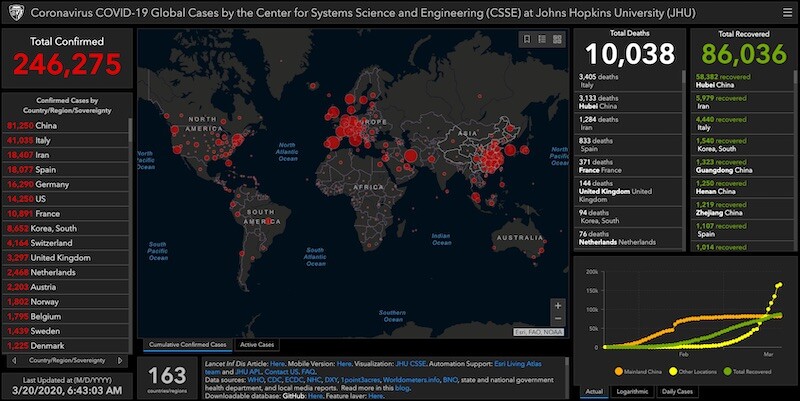Are there additional cybersecurity threats during this pandemic?
Amid concerns of the COVID-19 pandemic, the Church Educational System (CES) Security Operations Center is advising the campus community to beware of scams and malware being circulated via email and social media.
These scams typically involve impersonation of health officials or other official communicators to trick users into giving up personal information. We have recently learned that cybercriminals are spreading links to malicious sites disguised as reliable COVID-19 maps—such as the one at Johns Hopkins University (below)—to infect computers with malware. Links to these sites are being circulated both on social media and through misleading emails.

The real Johns Hopkins University map is available on Johns Hopkins website.
We have also received reports of students getting text messages from the CDC about COVID-19. This is a hoax. We encourage members of the campus community to visit I-Prepare or Idaho's official coronavirus resources for factual information and updates.
The US Department of Homeland Security Cybersecurity and Infrastructure Security Agency (CISA) advises individuals to exercise caution in handling any email with a COVID-19-related subject line, attachment, or hyperlink, and to be wary of social media pleas, texts, and calls related to COVID-19.
CISA further encourages individuals to remain vigilant and take the following precautions:
- Avoid clicking on links in unsolicited emails and be wary of email attachments.
- Use trusted sources—such as legitimate, government websites—for updated and credible information about COVID-19.
- Do not reveal personal or financial information over email, and do not respond to email solicitations for this information.
- Verify a charity’s authenticity before making donations. Review the Federal Trade Commission’s page on Charity Scams for more information.